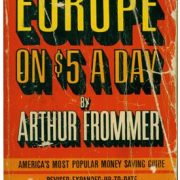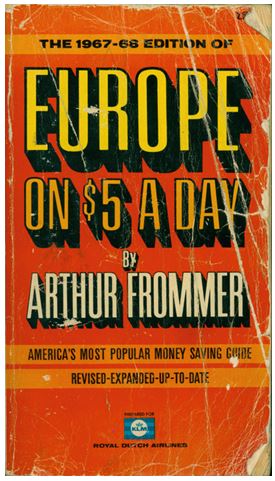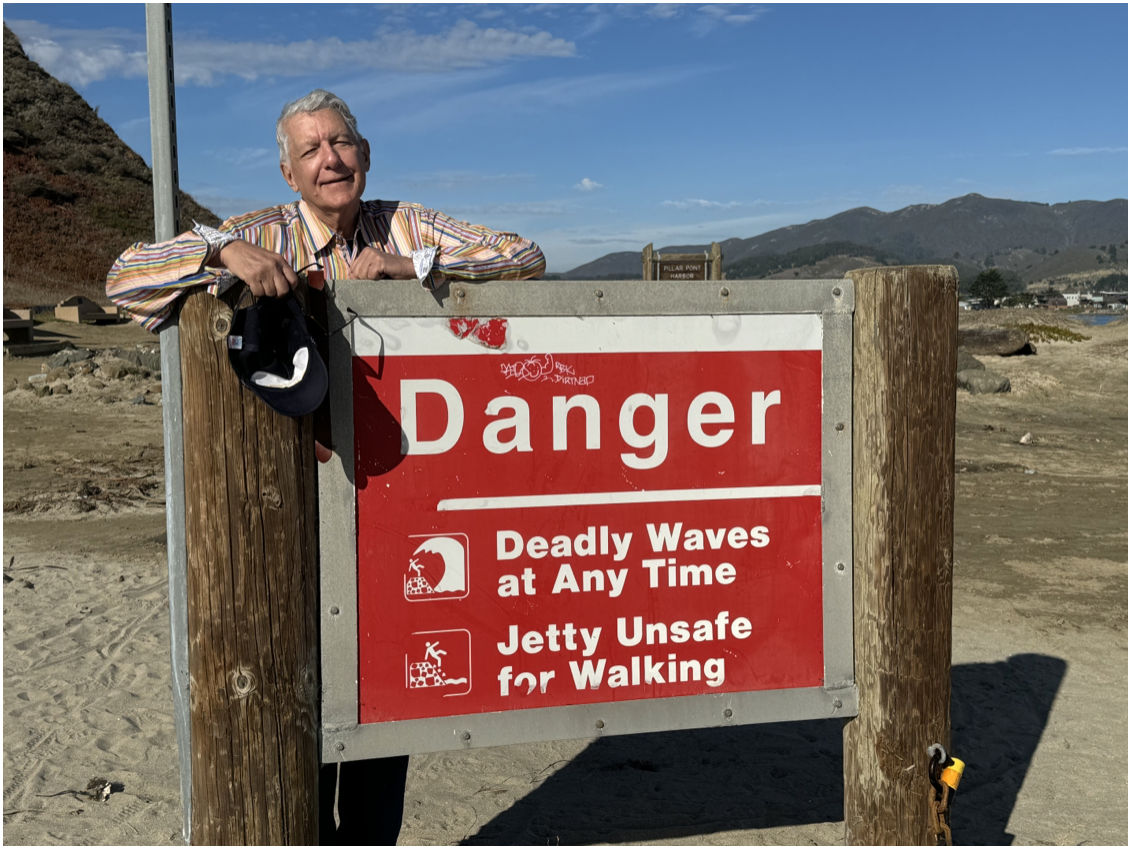An Evening with Travel Guru Arthur Frommer
It was with great sadness that I learned of the passing of travel guru Arthur Frommer at the age of 95. Arthur had a great influence on my life.
Since many of you are now planning summer vacations, I thought I would pass on what I learned from the ultimate travel guru of all time.
When I backpacked around Europe in 1968, I relied heavily on Arthur Frommer’s legendary paperback guide, Europe, on $5 a Day, which then boasted a cult-like following among impoverished but adventurous Americans. The charter airline business had just taken off, plunging airfares, and suddenly, Europe came within reach of ordinary Americans like me.
Over the following years, he directed me down cobblestoned alleyways, dubious foreign neighborhoods, and sometimes converted WWII air raid shelters to find those incredible travel deals. When he passed through town some 60 years later, I jumped at the chance to chat with the ever-cheerful worshipped travel expert.
Frommer believes there are three sea change trends going on in the travel industry today. Business is moving away from the big three travel websites, Travelocity, Orbitz, and Priceline, who have more preferential lucrative but self-enriching side deals with airlines than can be counted, towards pure aggregator sites that almost always offer cheaper fares, like Kayak.com, Sidestep.com, and Fairchase.com.
There is a move away from traditional 48-person escorted bus tours towards small group adventures, like those offered by Gap Adventures, Intrepid Tours, and Adventure Center, that take parties of 12 or less on culturally eye-opening public transportation.
There has also been a huge surge in programs offered by universities that turn travelers into students for a week to study the liberal arts at Oxford, Cambridge, and UC Berkeley. His favorite was the Great Books programs offered by St. John’s University in Santa Fe, New Mexico.
Frommer says that the Internet has given a huge boost to international travel but warns against user-generated content, 70% of which is bogus, posted by the hotels and restaurants touting themselves.
The 94-year-old Frommer turned an army posting in Berlin in 1952 into a travel empire that publishes 340 books a year, or one out of every four travel books on the market. I met him on a swing through the San Francisco Bay Area (his ticket from New York was only $150), and he graciously signed my tattered, dog-eared original 1968 copy of his opus, which I still have.
Which country has changed the most in his 60 years of travel writing? France, where the citizenry has become noticeably more civil since losing WWII. Bali is the only place where you can still actually travel for $5/day, although you can see Honduras for $10/day. Always looking for a deal, Arthur’s next trip is to Chile, the only country in the world he has never visited.
With the advent of AI, Arthur has been met with an onslaught of new competition. Recently, Amazon (AMZN) has been flooded with hundreds of new travel books written entirely by algorithms. They have no human author who’s ever visited the country in question and are written entirely from existing information found on the Internet. But they’re cheap.
You can easily spot them from their wishy-washy, non-committal language and factual errors and omissions. For example, I recently found a travel book about Ukraine that neglected to mention that there was a war going on there and that its cities were being bombed by Russians daily.
Not for me.
Arthur’s Next Big Play is Bali
1968 on the French Riviera






